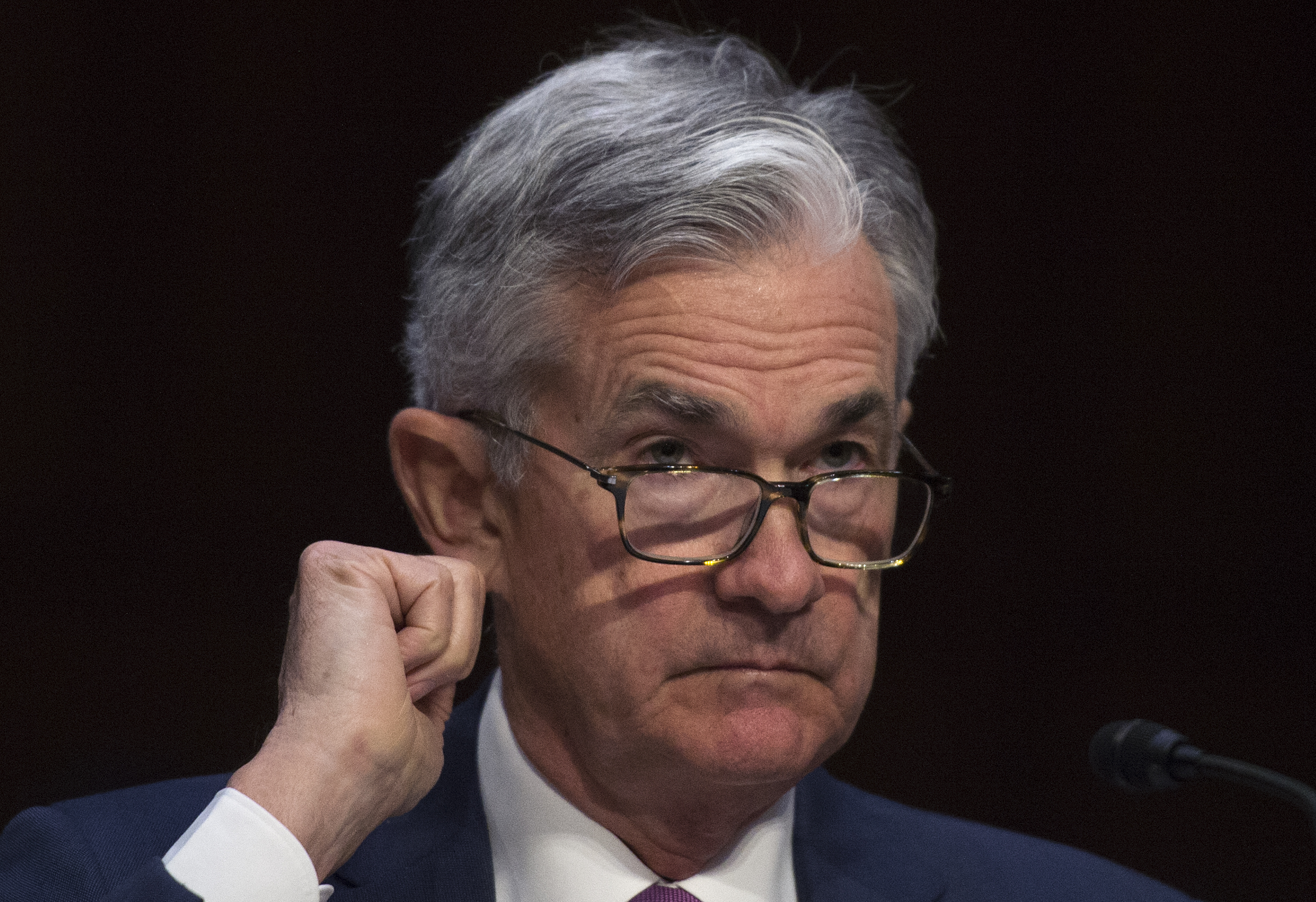Mnuchin reaffirms Fed’s independence after Trump complaints on rates
US Federal Reserve Chairman Jerome Powell is expected to raise interest rates twice more this year (ANDREW CABALLERO-REYNOLDS)
Washington (AFP) – US Treasury Secretary Steve Mnuchin offered assurances Sunday over the independence of the Federal Reserve as it heads into a two-day policy meeting that is expected to leave interest rates untouched despite a booming US economy.
In an appearance on Fox News Sunday, Mnuchin touted the economy’s performance as being on a path of rapid, sustainable growth after stellar 4.1 percent growth in the second quarter.
But he also was forced to allay concerns raised by President Donald Trump’s recent, eyebrow-raising complaints about Fed moves to raise interest rates.
“We, as an administration, absolutely support the independence of the Fed, and the president has made it clear that this is the Fed’s decision,” Mnuchin said. “Let me be clear, he absolutely respects the independence of the Fed.”
Presidents usually refrain from public comment on the Fed’s business, but that did not stop Trump from publicly chastising the bank earlier this month.
“I don’t like all of this work that we’re putting into the economy and then I see rates going up,” he said in an interview with CNBC on July 20.
The central bank is expected to hold its fire on interest rates at its two-day policy-setting meeting, which begins Tuesday.
But it is widely thought to be ready to raise rates twice more this year as inflation mounts, the jobless rate falls and the economy continues to soar.
After boosting the benchmark lending rate in March and June, the US economy has continued humming, with inflation at last hitting the Fed’s two percent target rate.
Most economists say the central bank has every reason to stick to its current course of gradual increases, which has seen the federal funds rate rise seven times since December 2015.
Futures markets overwhelmingly expect rate hikes in September and December, with the probability only increasing after Friday’s blockbuster GDP report.
“At least right now, the economy still looks pretty strong, more than strong enough to keep the unemployment rate coming down,” Jim O’Sullivan of High Frequency Economics told AFP.
While most economists expect growth to slow in the rest of the year, Mnuchin predicted annual growth of at least three percent well into the future.
“So I don’t think this is a one- or two-year phenomenon,” he said. “I think we definitely are in a period of four or five years of sustained three percent growth at least.”
Still, Trump told CNBC he was “not thrilled” about the Fed’s plans to continue tightening and took to Twitter to say America should be allowed to recoup the losses before rates rise again.
“Every time you go up, they want to raise rates again,” he told the network. “I am not happy about it. But at the same time, I’m letting them do what they feel is best.”
The Federal Reserve is legally and fiscally separate from the federal government.
But Sarah Binder, a Brookings Institution expert on the politics of the Federal Reserve, said despite its legal status, the Fed sits at the center of the political system.
– Joining the fray –
“Although we call it a norm, this expectation that the president is going to refrain and restrain himself from commenting on the Fed’s policies, it’s really just a short-lived practice,” she told AFP.
“In that sense, Trump is just joining the political fray.”
President Lyndon Johnson summoned Fed Chairman William McChesney Martin to his ranch after the Fed boosted rates in 1965.
Nixon bullied Martin’s successor, Arthur Burns, into holding rates low in the 1970s, ushering in the decade’s disastrous inflation.
More than 20 years later, President George H.W. Bush publicly called on Fed Chairman Alan Greenspan to cut interest rates — and later blamed Greenspan for his defeat in the 1992 elections.
It was only under President Bill Clinton that the Fed’s deliberations took on an air of inviolability.
The Fed has not reacted to Trump’s comments, pointing reporters instead to earlier remarks by current Chairman Jerome Powell, who said central bankers kept political independence “deep in our DNA.”
And analysts warned that openly challenging the Fed’s independence could backfire.
Former Fed vice chair Alan Blinder told AFP he would have defied such interference.
“My attitude would have been, and I believe the attitude of most members of the Federal Open Market Committee would have been, to stiffen our backs and show that we’re not taking instructions from the White House.”
And Blinder said Trump’s interference could create static in the Fed’s efforts to signal its intentions to markets — which prevents undue turmoil when a new move is announced.
If the Fed is seen as yielding to Trump’s pressure or overreacting by tightening policy more, markets could begin to second-guess their motives.
“We don’t want either,” Blinder said. “It is foolish for the president of the United States to make their job harder.”
Disclaimer: This story has not been edited by Siliconeer and is published from a syndicated feed. Siliconeer does not assume any liability for the above story. Validity of the above story is for 7 Days from original date of publishing. Content copyright AFP.


